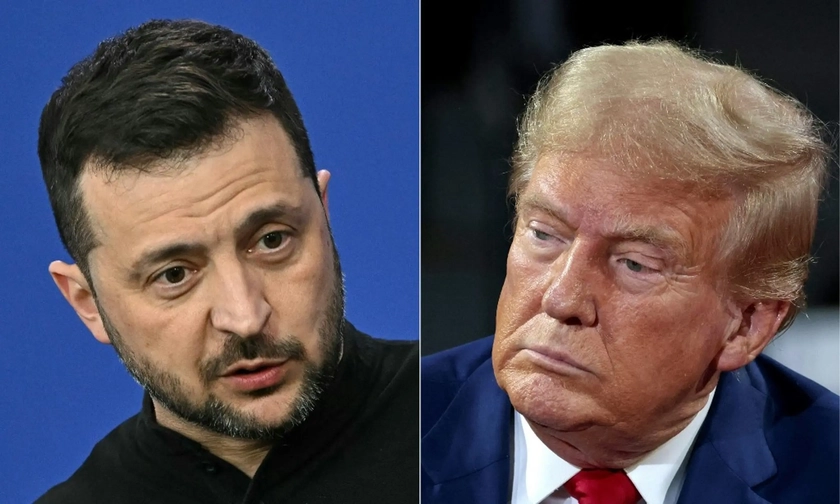Ukraine’s devastating New Year strike on an army barracks in the Russian-occupied town of Makiivka has become a huge headache and embarrassment for the Kremlin, as public anger mounts and the blame game intensifies.
What’s the latest?
JOIN US ON TELEGRAM
Follow our coverage of the war on the @Kyivpost_official.
In the early hours of Wednesday morning, Russian authorities said 89 troops were now known to have been killed when their temporary deployment point in the Donetsk region was destroyed by a Ukrainian strike carried out using U.S.-supplied Himars rocket systems.
- Find the most current war in ukraine update in the Kyiv Post’s daily news reports published today.
- Receive the latest Ukraine news bulletins for today.
"The number of our dead comrades has gone up," Lieutenant General Sergei Sevryukov said in a video statement released by the Russian defense ministry.
The Kremlin had previously said 63 troops were killed in the attack – the biggest loss of life from a single strike reported by Moscow since the start of the invasion in February.
Can we trust these figures?
Of course not, it’s Russia. Ukraine, as well as Russian sources believe the real death toll is closer to 400.
Yet the fact the Kremlin has officially acknowledged 89 gives an indication of the seriousness of the scandal unfolding over the strike.
Why is there such a blame game over the incident?
From the perspective of the Russian army, it should never have happened – hundreds of newly-mobilized troops were packed together in a building within range of Ukrainian Himars rockets.

Realpolitik and Betrayal
There are also reports that the servicemen were quartered in an unprotected building which was destroyed because munitions were stored on the premises and detonated in the strike.
That seems like a really dumb move.
It is. But this is the Russian army we’re talking about and the entire reinvasion of Ukraine has been littered with very dumb decisions by its commanders.
Russian war correspondents, who have gained influence in recent months, accused the country's top commanders of fatal incompetence.
Have they admitted they were at fault?
No. Sevryukov said a commission was underway to investigate what allowed Ukraine to carry out such a deadly strike, but that the main reason was “already obvious”.
"The main reason for what has happened was the turning on and massive use by personnel of mobile phones within reach of enemy weapons contrary to the ban," he said.
Is mobile phone use a feasible explanation?
Absolutely. Since the early days of the war, the lax use of mobile phones by troops has allowed both sides to pinpoint the location of the enemy. Unfortunately for Russia, its troops appear to have not learned lessons from it.
So, the troops that were killed are to blame?
That would be an unfair conclusion. Ultimately, their commanders are responsible for ensuring discipline and the adherence of security measures.
They were also responsible for the decision to house them all together in an unprotected building within range of Ukrainian rockets.
The US-based Institute for the Study of War predicted Russia's defense ministry would try to "deflect the blame for its poor operational security" onto local officials and mobilized personnel.
Why won’t they take responsibility?
Because the backlash in Russia to the strike has been immense and there are calls for those responsible to be held criminally responsible.
The Telegram account of the influential Russian war correspondent Rybar, which has around a million followers, said it was "criminally naive" for the army to store ammunition next to sleeping quarters.
Lawmaker Sergei Mironov said "all the higher authorities who did not provide the proper level of security" should face criminal charges.
And referring to Ukraine’s ability to monitor Russian troops within range of its forces, pro-Kremlin journalist and deputy speaker of the Moscow City Duma, Andrey Medvedev, said: “Ten months into the war, it is dangerous and criminal to consider the enemy a fool who does not see anything.”
Grief has also spilled onto the street of Russia and in a rare public commemoration, some 200 people gathered in the city of Samara – where some of the victims came from – to commemorate the dead.
Mourners laid flowers at a city monument, an Orthodox priest recited a prayer for the dead, and soldiers fired a gun salute.
Is any of the anger directed at Russian President Vladmir Putin?
Not yet. So far, he has kept quiet and chosen not to comment publicly on the attack and some have called for him to escalate the war further.
A little-known group, dubbed Soldiers' Widows of Russia, urged Putin to announce general mobilization.
You can also highlight the text and press Ctrl + Enter











